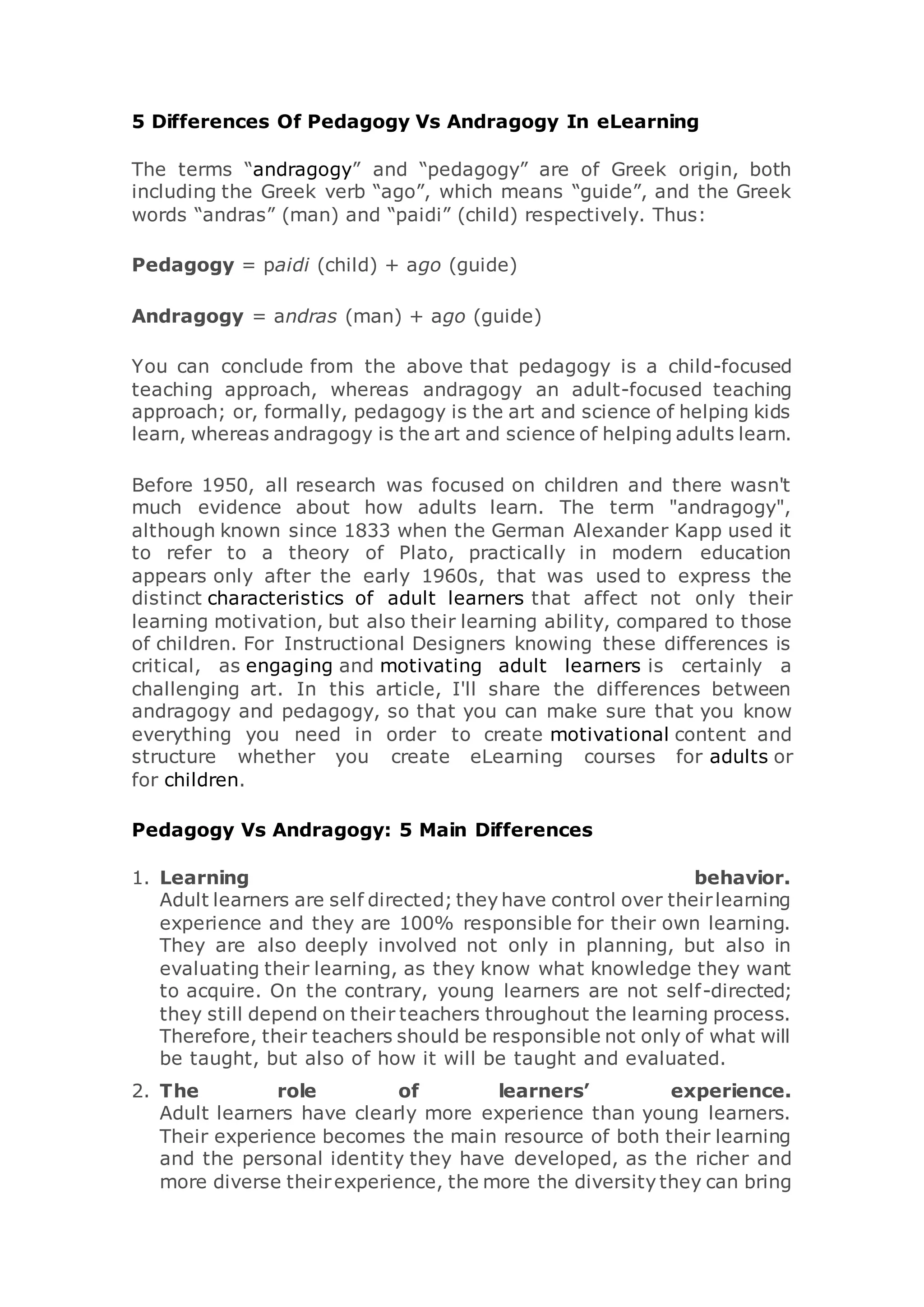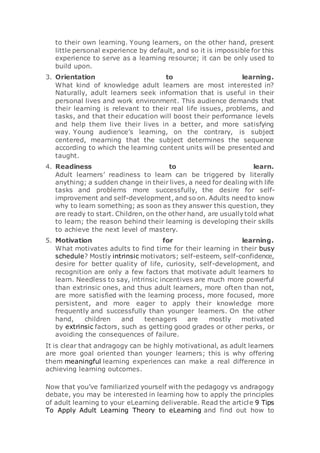The document discusses the differences between pedagogy and andragogy. Pedagogy refers to teaching children, focusing on their dependence on teachers and subject-centered learning. Andragogy refers to teaching adults, who are self-directed, use their experience as a learning resource, seek relevant knowledge, are ready to learn for practical reasons, and are motivated intrinsically. The key differences are that adults are autonomous, experience-driven, problem-centered, ready when life-triggered, and motivated internally, whereas children are dependent, experience-lacking, subject-focused, told what to learn, and motivated externally. Knowing these distinctions helps create engaging eLearning for adults versus children.


